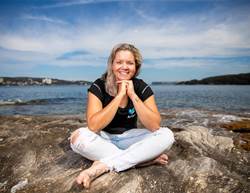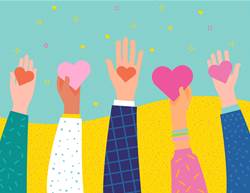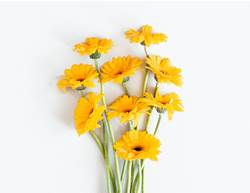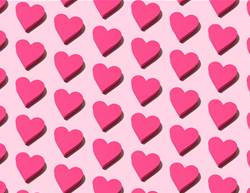As a veteran massage therapist of almost two decades, I’d spent most of my time working in small, quiet massage studios offering clients an hour or more of comfort and healing. Although I never bored of my calling, in 2006, when my youngest son started college, I felt a sudden pang of loneliness that many of us experience when our last child leaves the nest. So I did what my own mother had done when her children had grown up; I signed up for college courses—at the ripe age of 48. What I couldn’t know then was that meeting a young woman with kidney disease in a gender studies class and eventually writing a paper about the tragic lack of available organs would set me on a life-changing path.
Lucy [all names have been changed to protect privacy] and I had taken to studying together in the cafeteria. As a woman twice her age, I naturally probed her with questions about her young life. We eventually took up the topic of her vegetarianism. Picking at her tiny salad with a plastic fork, she explained how she mostly ate fruits and veggies because protein was harder for her diseased kidneys to process. Later that day, as I watched this beautiful, intelligent, and lively young woman hunched over her papers in the classroom, the mother in me took over. I hurriedly finished my test and waited outside the classroom. As soon as she came through the door, I told her I wanted to give her a kidney. She thanked me, but turned me down. She said that she appreciated the offer, but she’d made peace with her situation and that I should let it go.
I told her I would let it go, but I'd lied. I would let it go with her, of course, at her request, but I had already chosen organ donation as my topic for another class. In my research, I was moved to tears as I read through heartbreaking pleas; people begging for someone to save them or their afflicted loved one. It wasn’t long before I understood that I was meant to meet young Lucy. And that writing the paper was not about proving a thesis—it was about proving that each one of us has the ability to make a difference... and sometimes, the opportunity.
Even before I’d finished writing the paper, I signed up on an online donor-recipient matching website. After scrolling through hundreds of heart-wrenching profiles, I selected a recipient named Kathy, a hospice nurse close to my age. Her hospital sent me a kit of vials to have my blood tested locally. While we waited for the results, Kathy and I exchanged emails and eventually spoke on the phone. In contrast to my giddiness about a potential match, Kathy was grateful but sober. She warned me that due to high antibodies she was really difficult to match. And she was right; six weeks later I learned we were not compatible. Because I couldn’t donate to Kathy directly, we signed up for a “paired match” program to hopefully find a donor and recipient in the same situation so we could swap places. After three years of waiting, we never found one.
By this time I’d gone through rigorous testing that included kidney scans, chest x-rays, mammogram, colonoscopy, more blood vials, urinalysis and other various tests to determine that I was healthy enough to donate. I was. Although saddened by not being able to help Kathy, with whom I’d now created a deep friendship, I wasn’t about to give up. If I’d learned anything in this process, it’s that once your eyes have been opened to a problem, looking away is no longer an option. With help from my transplant coordinator, I signed on as an altruistic donor through the National Kidney Foundation to donate to an unknown recipient. Within a week a perfect match was found.
My nephrectomy took place on December 17, 2010. When people ask about my recovery, my answer is that the caffeine headache the next day was much worse than any incisional pain. If I hadn’t been hooked up to an IV, I’d have crawled three blocks for my morning espresso. I donated on a Thursday and went home on Sunday. The surgical discomfort was managed with medication and within a week I was down to a Paracetemol. I returned to work three weeks later.
My mission to become a donor had involved many unexpected stops and starts and a lot of waiting but three years after I began the quest, my kidney took a redeye flight to the opposite coast where it continues to faithfully churn away in a stranger’s body. I know this because I sent an “adoption letter” with my kidney that my recipient used to track me down on Facebook. I learned that his wife had donated a kidney in order for him to receive mine. There were more transplants in the chain I started, but I’m not sure how many.
My remaining kidney has gleefully taken up the slack and I feel healthier than ever, physically, mentally and spiritually. The laparoscopic surgery has left three tiny scars that have faded so that I have to really look closely to find them. And that’s where I thought the story would end. I assumed I’d just go about my business of practicing massage therapy and living a quiet life in my little town, knowing that I’d made a positive contribution to society. What I now know is that this event was just the first page in the next chapter of my life. In the decade since deciding to become a living donor, I’ve come to understand that our actions don’t occur in a vacuum. Our seemingly simple choices create tiny ripples that spread both internally and externally.
People want to know why I’d donate to a complete stranger. After discovering how little information was available on the topic of living donation, I’d agreed to participate in 'Perfect Strangers,' a documentary film that follows the story of anonymous kidney donation, in hopes of answering this question. Once the documentary released, I traveled with the filmmaker to screenings of Perfect Strangers where I participated in Q & A’s after the film. During these interviews with attendees, it became clear that the film did an excellent job of showing the “who, what, where and when” of kidney donation and transplant. Explaining the why of my choice to donate was much more complex. But I tried. I accepted invitations to speak. I volunteered to mentor prospective donors. I became a moderator for a couple of Facebook support groups for those thinking about donating. Over time I realised I was only reaching a handful of people. I needed to find a way to share my story—and the stories of all those still waiting for a miracle—with a wider audience.
I knew I had to tell my story to a wider audience if I was ever going to fully communicate how my upbringing and experiences had shaped my choice to become a donor, or how deeply that event has affected my life. I published Lost in Transplantation in 2014 at the tender age of 55. The book was well-received, and I felt satisfied that not only had I done a positive thing for my recipient, but I’d also hopefully educated or even inspired others. Readers might not decide to become a living donor, but perhaps a few would see how helping someone else takes you out of yourself and gives your life deeper meaning and greater purpose. And how helping one individual helps the collective whole.
End of story, right? Happily, no! In the process of speaking and publishing my memoir, I gained the confidence to blow the dust off my fiction manuscripts and re-read them. I revised and polished one of the novels and eventually queried a few agents. My debut novel, This I Know, releases in April of 2018. I’ll be 59-years-old. And I’ll be 60 when the following book publishes.
People still ask me why I donated a kidney to a stranger. My answer is that I was raised to believe we have a responsibility to be of service to one another. The act of donating does not define me, but it has definitely shaped me. Flannery O’Conner penned the iconic phrase, “The life you save may be your own.” My own life didn’t need saving. I was a happy and content woman in mid-life. Still, when I look back on the day I bumped into that lovely young woman at a local college who shared her story with me, I had no idea it would alter my own story in so many significant ways. Some people call it fate. Others call it karma. 10 years ago I never expected to feel so joyous, so fulfilled and so grateful for having the opportunity to change someone’s life. And I never dreamed that someone would be me.










